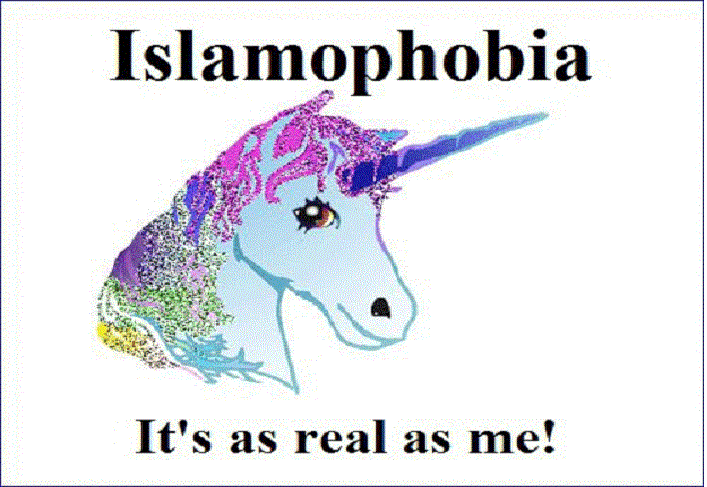It’s not Islamophobia when they’re really trying to subjugate or murder you…
Europe: The New Political Weapon of ‘Islamophobia’
- The objective of using the word “Islamophobia” appears to have been to make Islam untouchable by placing any criticism of it as equivalent to racism or anti-Semitism.
- The word “Islamophobia” deliberately intends to transform the critique of a religion — a fundamental right in Western societies — into a crime.
- “The term ‘Islamophobia’ serves several functions….Above all, however, the term is intended to silence Muslims who question the Koran, who demand equality of the sexes, who claim the right to renounce their religion, and who want to practice their faith freely and without submitting to the dictates of the bearded and dogmatic.” – Pascal Bruckner, in his book, Un racisme ordinaire : Islamophobie et culpabilité, Grasset, 2017 [English version: An Imaginary Racism: Islamophbia and Guilt, Polity 2018]
- It is not Muslims people “hate,” any more than they hate Hindus or Buddhists or Shintos. It is the violence and coercion that some adopt — what is known as jihad or holy war — that people reject.
- In the attacks at the Bataclan Theater and other sites in 2015, terrorists murdered 131 persons and wounded 413. Is it irrational to remember who was calling those shots?
 As noted by the journalist Stéphane Charbonnier, murdered in the Charlie Hebdo attack in 2015, Islamophobia “is not only a poorly chosen word but also a dangerous one.” (Image source: Arzu Çakır/VOA/Wikimedia Commons) As noted by the journalist Stéphane Charbonnier, murdered in the Charlie Hebdo attack in 2015, Islamophobia “is not only a poorly chosen word but also a dangerous one.” (Image source: Arzu Çakır/VOA/Wikimedia Commons) |
France is once again profoundly divided over Islam. Last Sunday, November 10, a “March against Islamophobia” was held in Paris in response to an appeal from 50 public figures. In an op-ed in the leftist newspaper Libération, the demonstrators pleaded to “stop Islamophobia and stop the growing stigmatization of Muslims, victims of discrimination and aggression”.
Two recent incidents ignited the public debate and served as a pretext for the march. On October 26, an 84-year-old man shot and injured two men while trying to set fire to the mosque of Bayonne. Earlier in October, in the Regional Assembly of Burgundy, a member of the National Rally party (RN) complained about the presence in the gallery of a woman wearing an Islamic headscarf. The French political class and media condemned both incidents almost unanimously.
Among the signatories of the op-ed are Jean-Luc Mélenchon, president of La France Insoumise (“Unsubmissive France”), the most prominent leftist political party in the French National Assembly; Benoît Hamon, the Socialist Party candidate in the last presidential election; Philippe Martinez, leader of the Communist trade-union General Confederation of Labor (CGT); Yannick Jadot, a prominent Member of European Parliament from the Green party and Edwy Plenel, editor of Mediapart, a successful online media news platform and former editor of the newspaper Le Monde.
The op-ed sparked a national debate. How could these established public figures sign a text alongside known Islamist sympathizers, such as Nader Abou Anas, an imam who believes that “women can only go out with the permission of their husband”, or Marwan Muhammad, the former CEO of the Collective against Islamophobia in France (CCIF) — an organization suspected of links with the Muslim Brotherhood — who compared the situation of Muslims in France today with those of the Jews in Germany in the 1930s, going so far as to add that “in France, mosques are machine-gunned” (“mitraillé“)?

